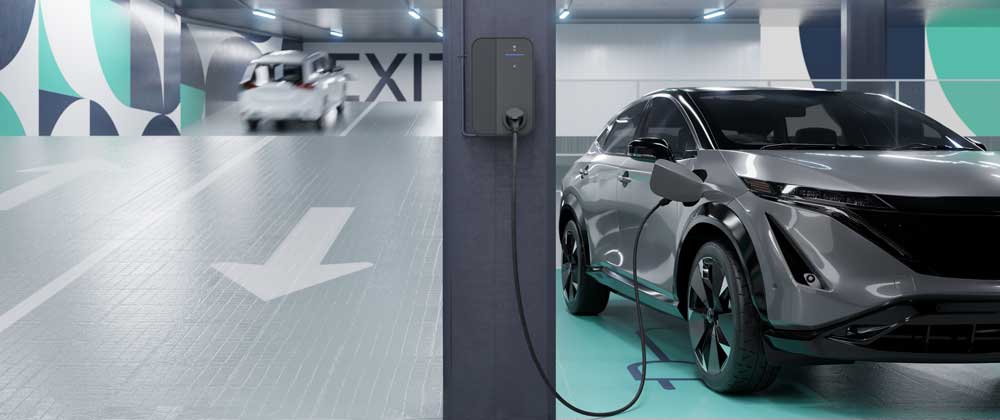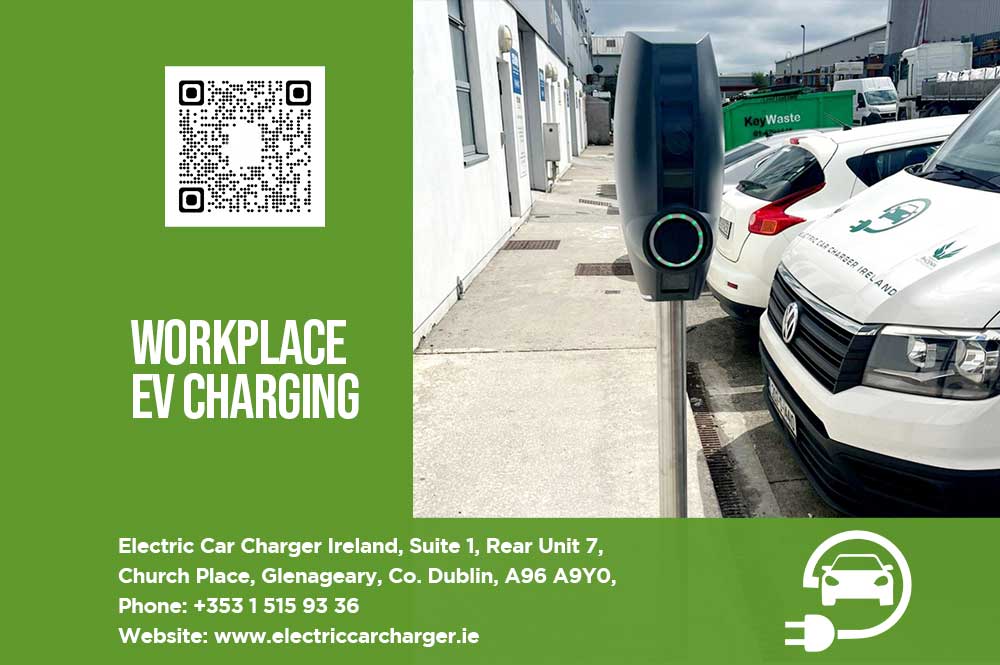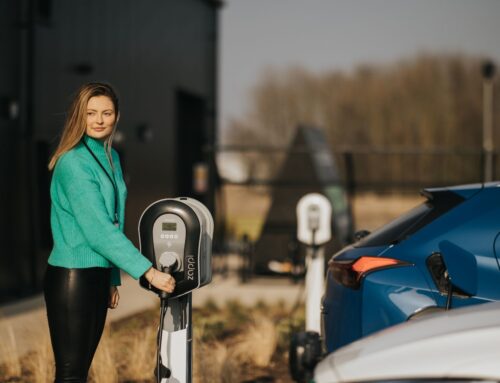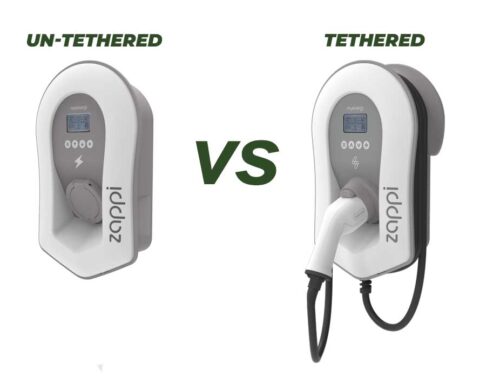Table of Contents
- The Transition Toward Electric Vehicles
- Workplace Electric Vehicle Charging: What it Is and Why it Is Necessary
- Employee Benefits of Workplace Electric Vehicle Charging for Employees
- Workplace Charging Increases Employee Satisfaction and Retention
- Crafting an Effective Workplace Charging Policy
- Future of Workplace Electric Vehicle Charging Solutions
Workplace EV Charging – As we speed into an ever more technological future, electric vehicles (EVs) have grown from being an eccentric choice to an increasingly mainstream option. In cities engulfed in smog, demand for sustainable solutions is ever present, yet EVs provide hope. But you might be surprised to learn about an unexpected key player in this green revolution – workplace EV charging can play an essential part of sustainability efforts as well as providing unexpected advantages beyond environmental sustainability like employee satisfaction.
The Transition Toward Electric Vehicles
Accelerated adoption of electric vehicles (EVs) is a global phenomenon. Over the last decade, registrations for these cars have experienced exponential growth thanks to technological breakthroughs, policy incentives and rising environmental awareness. China, European Union countries and United States lead this revolution, producing and selling more and more EVs every day onto roads across their respective nations – heralding an incredible shift in how we move and live.
At the core of this electrifying revolution is sustainability. Traditional vehicles with their carbon-spewing exhausts contribute to air pollution and climate change; on the other hand, electric vehicles (EVs) (More info on – (Buying an Electric Car in Ireland)) produce zero tailpipe emissions compared to their counterparts; even considering emissions generated during electricity generation they still usually come out ahead. Furthermore, their high energy efficiency combined with renewable power makes EVs a game-changer in terms of sustainable transportation solutions.
So where does workplace EV charging fit into this grand puzzle of green mobility? Imagine this: when you drive your EV to work and plug it into a charging station in the staff car park, while working or meeting, your EV guzzles up electrons while you complete spreadsheets or plan meetings – by the time you clock out it’s fully charged ready to take you home or on weekend road trips – making “range anxiety” obsolete while helping accelerate our shift toward sustainable mobility and increasing its popularity among more people. Workplace EV charging plays a crucial role in increasing acceptance among more people as it accelerates our shift towards sustainable mobility while encouraging more people towards electric vehicles while encouraging others towards adopting them faster in terms of both adoption.
Workplace Electric Vehicle Charging: What it Is and Why it Is Necessary
Simply put, workplace EV charging involves setting up charging stations at workplaces so employees can recharge their electric vehicles during work hours – acting like a convenient refuelling station right where they park! But it goes beyond providing simply another facility; workplace EV charging also fosters an EV-friendly culture among employees that supports and promotes their use of EVs.
Employers and employees alike will reap numerous advantages from this initiative, with employers seeing this move as an investment that enhances their green image, shows commitment to sustainability and attracts talent who value such efforts. Employees enjoy direct benefits including free or subsidized charging at work and reduced anxiety about driving range. Plus it serves as a tangible daily reminder of what their contribution means towards helping save the environment – who wouldn’t want that sense of being part of something bigger?
Workplace EV charging has far-reaching impacts that contribute to overall sustainability. Encouraging EV usage helps lower greenhouse gas emissions and air pollution – two essential goals in combatting climate change – while stabilising grid demand by spreading out energy demand throughout the day and providing potential stored energy which can be fed back into it when needed.
As we navigate towards a sustainable future, workplace EV charging becomes an indispensable stopover in achieving sustainability. Not only does workplace charging power electric vehicles, it also fosters cleaner work environments. So buckle up as we continue our exploration of workplace charging in future sections!
Employee Benefits of Workplace Electric Vehicle Charging for Employees
Convenience tops the list when discussing employee benefits associated with workplace EV charging, especially among employees with busy schedules who find charging an EV challenging. Charging stations at workplaces provide a seamless solution, by turning parking time into charging time. Financial aspects also play a part: companies often offer free or discounted charging packages which result in significant savings over time for employees; making workplace charging an appealing combination that blends practicality and financial sustainability.
As previously discussed, range anxiety is a legitimate fear among potential EV owners; fearing running out of charge before reaching your destination or charging station can be disconcerting. Workplace charging stations serve as a safety net for employees commuting to work daily in EVs; they ensure their vehicles have enough power for both homecoming and any unexpected trips they might need to make during their workday.
Workplace charging plays an integral role in increasing EV adoption among employees. By witnessing firsthand how easy and beneficial using electric vehicles are, coupled with workplace charging stations being easily available and convenient enough, employees may become convinced of switching from traditional vehicles to EVs; creating an environment which not only facilitates but actively encourages more sustainable practices.
Workplace Charging Increases Employee Satisfaction and Retention
Workplace amenities have a dramatic impact on job satisfaction for employees. Workers appreciate an employer who pays close attention to meeting their needs while remaining up-to-date on current trends and challenges, such as providing workplace EV charging facilities as an indicator of its commitment to sustainable practices and employee welfare.
Establishing electric vehicle charging facilities can be an invaluable asset in recruiting and retaining talent. As more EVs enter the market, so will demand for charging stations; having one on-site may sway potential employees toward choosing your company as it caters to this need; existing employees may feel valued knowing their employers invest in facilities which directly benefit them, leading to higher retention rates overall.
Numerous companies worldwide are beginning to see the advantages of installing workplace EV charging stations. Some have reported increased employee satisfaction, improved company perception and even an upsurge in employees converting to EVs.
Crafting an Effective Workplace Charging Policy
Employers need to keep several key considerations in mind when developing an effective charging policy. Employers must carefully assess the charging infrastructure – including number and type (Level 1, Level 2 or DC fast chargers). Pricing structures (if applicable), nonworking hours use and managing high-demand periods should all be covered within this policy.
Finding a balance between the needs of electric vehicle (EV) drivers and non-drivers is of equal importance. While encouraging the adoption of EVs is necessary, employers could also provide alternative green initiatives which benefit all employees – such as carpooling incentives or discounted public transportation passes. This balance can be achieved by offering carpooling incentives or subsidised public transit passes as suitable solutions.
Employers should also consider government incentives and regulations related to workplace EV charging stations, such as tax benefits or grants from various governments. (More info on – (Electric Vehicle Home Charger Grant)) Being informed about laws or regulations surrounding workplace EV charging can assist companies in creating policies that comply with all requirements while optimizing results for maximum benefits.
Workplaces play an essential role in driving the transition toward electric transportation, and effective policies and strategies surrounding workplace EV charging can have far-reaching benefits that extend far beyond environmental sustainability, including creating happier employees. (More info on – (Advantages of Electric Cars))
Future of Workplace Electric Vehicle Charging Solutions
Studying the future of workplace EV charging reveals an exciting array of prospects. One trend worth noting is Vehicle-to-Grid (V2G) technology, an innovative way of energy distribution which not only allows the charging of electric vehicles but also returns stored energy back to the grid during times of peak demand – turning electric cars into mobile power storage units that offer novel solutions to grid stability. Another emerging technology trend that’s making headlines is wireless or inductive charging; this offers more convenient charging without EV charging cables or plugs needed – ideal for workplace EV charging environments!
These new trends will significantly boost workplace charging’s appeal. V2G technology, for instance, could enable companies to cut energy costs by selling back excess stored power during peak demand times; employees get charged cars while employers manage energy more cost-effectively. Wireless charging also offers unparalleled convenience – potentially making the switch more enticing for employees. These innovations demonstrate workplace EV charging’s immense potential in the near future.
(More info on – (Electric Car Charging Points For Business))
As we wind down this discussion, let’s recall its central themes: the global adoption of electric vehicles has necessitated extensive charging infrastructure – with workplaces playing an essential role in meeting this demand. Installing EV chargers at work has numerous advantages ranging from mitigating range anxiety and supporting sustainability initiatives to increasing employee satisfaction and retention rates. Looking ahead, V2G technology and wireless charging promise to dramatically transform this landscape of EV charging.
Workplace EV charging is more than an amenity; it’s a statement about your company’s dedication to sustainability and employee wellbeing. At this critical juncture in energy evolution, encouraging such practices should no longer be considered optional but an absolute requirement if we wish for our workforce’s well-being and satisfaction. Workplace EV charging really is the secret weapon to increase employee satisfaction and sustainability – underscoring how work’s future success depends not only on what we produce but how we get there as well.
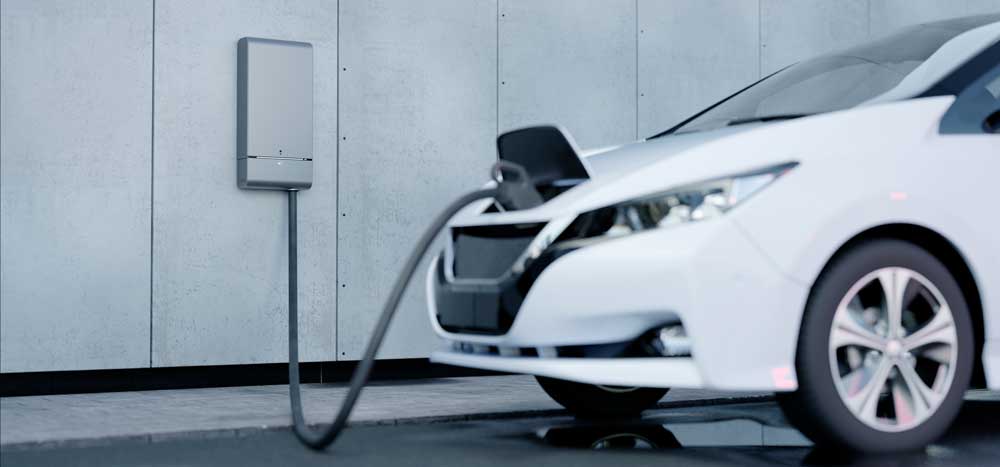
Electric Car Charger Ireland, Suite 1, Rear Unit 7, Church Place, Glenageary, Co. Dublin, A96 A9Y0, | Phone: +353 1 515 93 36 – [DRIVING DIRECTIONS]
Frequently Asked Questions about Workplace EV Charging
What is Workplace EV Charging?
Workplace EV Charging refers to the provision of electric vehicle charging facilities in workplaces for employees to use during working hours – serving as a convenient refuelling station for their electric cars.
Why Is Workplace EV Charging Essential?
Having electric vehicle chargers available at work is essential in supporting the adoption of electric vehicles. It provides convenience, helps manage range anxiety, supports sustainability initiatives and increases employee satisfaction and retention rates.
What Are the Advantages for Employees?
Key advantages of charging stations at work include the convenience of use and potential financial savings should an employer offer discounted or free charging. Reduced range anxiety also plays a part in building an eco-friendly culture.
How Does Workplace EV Charging Increase Employee Satisfaction?
The provision of charging facilities at work increases employee satisfaction as it demonstrates an employer’s dedication to employee wellbeing and sustainability, helping recruit and retain talented individuals who appreciate such initiatives.
What Should be Considered When Crafting a Workplace Charging Policy?
Important considerations when setting up workplace EV charging include the type and number of charging stations, pricing structures, use outside working hours, and meeting drivers’ and non-drivers’ demands for charging. Furthermore, awareness of government incentives and regulations related to workplace EV charging is paramount to its success.
What is the Future of Charging at Work?
Future prospects look bright, thanks to recent trends like Vehicle-to-Grid (V2G) technology that enables energy distribution from electric vehicles back into the grid and wireless or inductive charging technology which offers more convenient cordless charging solutions. (More info on – (EV Chargers Ireland))
Related searches: “Workplace Electric Vehicle Charging Stations”, “EV Charging at Work”, “Workplace Charging Stations for Electric Cars”, “Employee EV Charging Benefits”, “Workplace Charging Policy”, “Sustainability and Workplace EV Charging”, “Future of Workplace EV Charging”, “Vehicle-to-Grid Technology in Workplace”, “Wireless EV Charging at Workplace”, “Workplace Charging Solutions”, “Electric Vehicle Adoption in Workplace”, “Installing EV Chargers at Work
Ever wondered about Electric Charging Stations….Check out our latest blog post for details.

